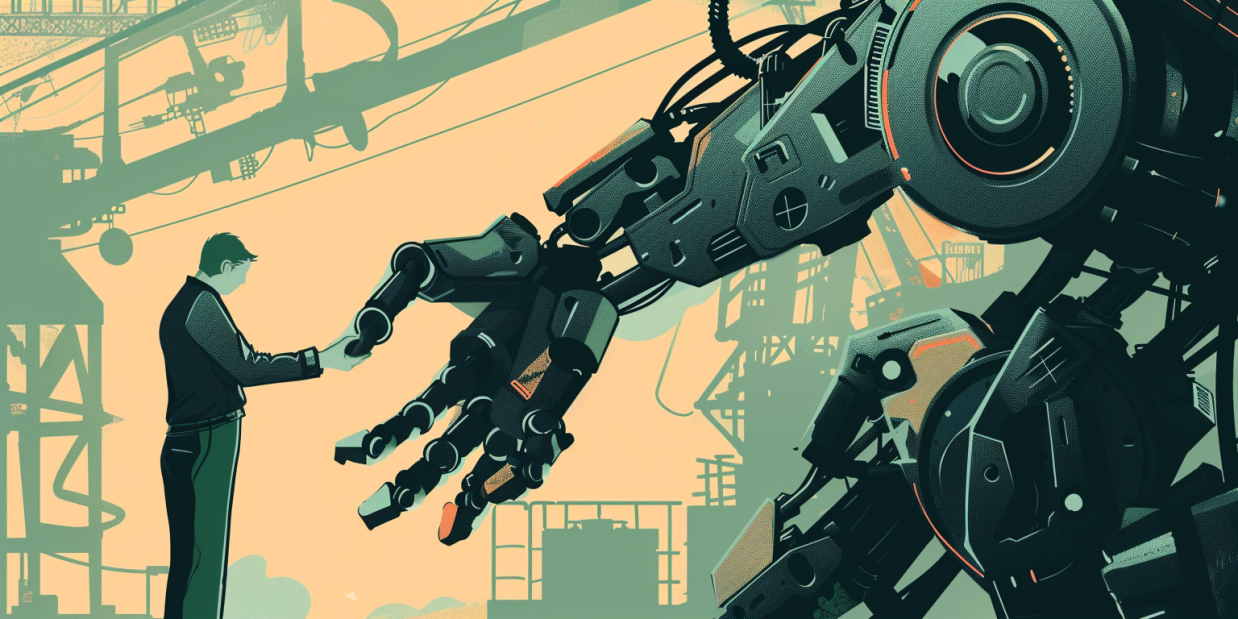The Unseen Jobs Created by AI and Automation
Unlock AI job opportunities. Explore new roles in the evolving job market. From AI ethics officers to autonomous vehicle specialists, embrace collaboration with technology for career growth. Navigate the future of work.
Get referred to your dream company
Sections
The narrative surrounding Artificial Intelligence (AI) and automation often gravitates towards the jobs these technologies will displace. However, this perspective overlooks a critical aspect of the AI revolution: the emergence of new job categories and roles that were previously unimaginable. This blog post shines a light on the unseen jobs created by AI and automation, exploring how these advancements are not just reshaping but also expanding the job market.
The Catalysts for New Careers
AI and automation are acting as catalysts for the creation of new jobs, driving demand for skills and roles that align with the evolving digital landscape. From AI ethics officers to autonomous vehicle specialists, the job market is adapting to the needs of an increasingly automated world.
1. AI Ethics Officer
As AI becomes more integrated into everyday life, ensuring these systems make ethical decisions is paramount. AI ethics officers are responsible for developing guidelines and policies to guide the ethical development and implementation of AI technologies. They navigate complex moral landscapes to ensure AI serves the public good, respecting privacy and promoting fairness.
2. Machine Learning Engineer
Machine learning engineers are at the forefront of AI development, designing algorithms that enable machines to learn from and interpret data. With AI's expansion across industries, the demand for these specialists is skyrocketing, making it one of the fastest-growing career paths today.
3. Data Annotation Specialists
For AI systems to learn, they need vast amounts of data, which must be accurately labeled or annotated. Data annotation specialists play a crucial role in AI development by preparing data sets for training machine learning models. This job requires a keen eye for detail and an understanding of the nuances within the data.
4. Autonomous Vehicle Specialists
The push towards autonomous vehicles has created a new field of expertise. Autonomous vehicle specialists work on the algorithms, mechanics, and safety protocols that allow vehicles to operate without human intervention. This role spans across software development, robotics, and engineering, highlighting the interdisciplinary nature of AI-driven jobs.
5. AI-enhanced Healthcare Technicians
AI is transforming healthcare, from diagnostics to personalized medicine. AI-enhanced healthcare technicians work alongside these technologies, operating AI-powered diagnostic tools, managing patient data, and ensuring the seamless integration of AI into patient care.
6. Conversational Interface Designers
With the rise of AI-powered chatbots and virtual assistants, there's a growing need for professionals who can design these conversational interfaces. These designers combine expertise in psychology, linguistics, and computer science to create engaging and effective AI-driven communication tools.
7. AI Safety Engineers
As AI systems perform more critical functions, ensuring their reliability and safety becomes essential. AI safety engineers focus on developing robust AI systems that can operate safely and effectively, even in unpredictable environments. This role is crucial in fields where AI directly impacts human lives, such as healthcare and transportation.
Navigating the AI-Driven Job Market
The emergence of these new roles underscores the dynamic nature of the job market in the face of technological advancements. To navigate this changing landscape, professionals need to focus on continuous learning and adaptability. Developing skills in AI, machine learning, and data analysis can open doors to these emerging fields. Additionally, soft skills such as problem-solving, ethical judgment, and adaptability are increasingly valuable in roles that intersect with AI and automation.
The Future is Collaborative
The jobs created by AI and automation reflect a future where human ingenuity collaborates with technological advancement. Rather than viewing AI as a competitor in the job market, embracing it as a partner can lead to new opportunities and career paths. The future of work is not just about competition between humans and machines but about the collaboration that drives innovation and growth.
Conclusion
The AI revolution is not a zero-sum game where technological advancements come at the cost of human jobs. Instead, AI and automation are creating a plethora of new roles and opportunities, many of which we are only beginning to understand. By highlighting the unseen jobs emerging from the AI revolution, we can better appreciate the complexity and dynamism of the future job market. As we continue to navigate this evolving landscape, the focus should be on harnessing the potential of AI and automation to create a job market that is diverse, innovative, and inclusive.
Your career is worth investing in.
Try premium.
Community
© 2025 Crucible Fund LLC. All rights reserved.
